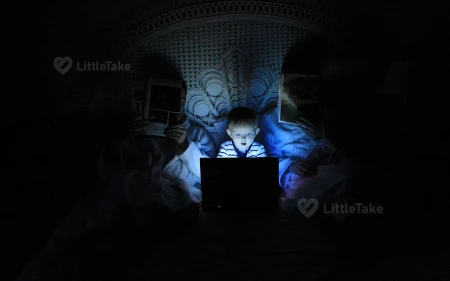
Dealing with Online Peer Pressure
Online peer pressure can be a significant challenge for kids and teens as they navigate the digital world. This article offers practical advice for dealing with online peer pressure, helping young people make smart choices and maintain a positive online presence.
1. Foster Open Communication
Encourage your child to talk openly about their online experiences, including any instances of peer pressure. Establish a supportive environment where they feel comfortable discussing their concerns and asking for guidance.
Real-Life Example: A Supportive Chat
When Sara felt pressured to share a risky photo online, she confided in her mom. Together, they discussed the potential consequences and explored alternative ways for Sara to handle the situation.
2. Teach Critical Thinking Skills
Empower your child to make informed decisions by teaching them to evaluate online content and situations critically. Encourage them to consider the potential consequences of their actions and question the motives of others.
3. Set Clear Boundaries and Expectations
Establish clear guidelines for online behavior, including what types of content are acceptable to share and how to interact with others. Regularly review and update these expectations as your child grows and gains more online experience.
4. Discuss the Impact of Online Actions
Help your child understand the potential long-term consequences of their online actions, such as how sharing inappropriate content can damage their reputation or future opportunities. Encourage them to consider how their actions may affect others and promote empathy and kindness in their online interactions.
5. Be a Positive Role Model
Model responsible online behavior by demonstrating respect, empathy, and kindness in your digital interactions. Show your child how to maintain a positive online presence by sharing appropriate content and engaging in constructive conversations.
6. Encourage Involvement in Offline Activities
Provide opportunities for your child to develop friendships and interests outside of the digital world. Encourage them to participate in clubs, sports, or other activities that foster a sense of belonging and self-esteem.
7. Seek Professional Help if Needed
If your child struggles with online peer pressure or exhibits signs of anxiety, depression, or other concerning behaviors, consult a mental health professional for guidance and support.
Conclusion
Dealing with online peer pressure requires open communication, critical thinking skills, clear boundaries, understanding the impact of online actions, positive role modeling, involvement in offline activities, and seeking professional help if needed. By addressing online peer pressure proactively, parents can help their children develop resilience and maintain a healthy digital life.













